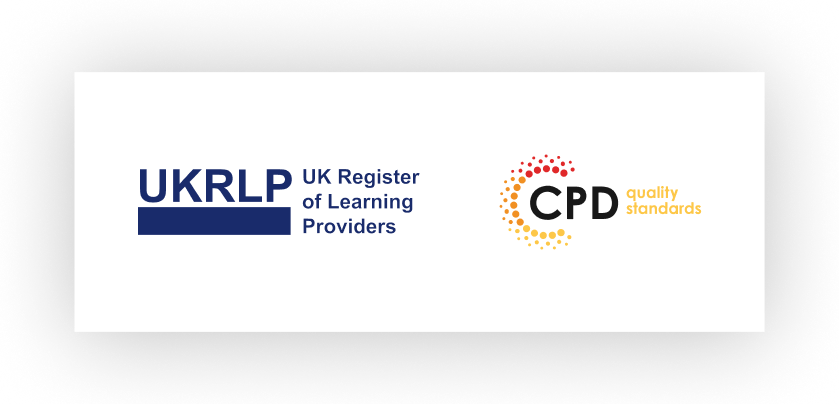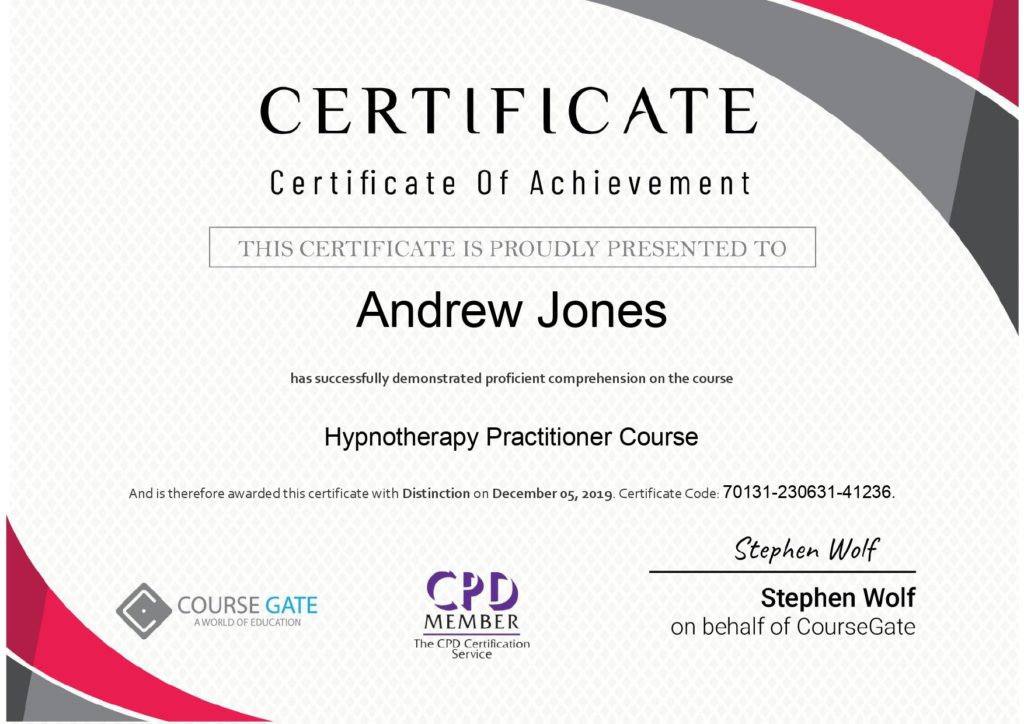
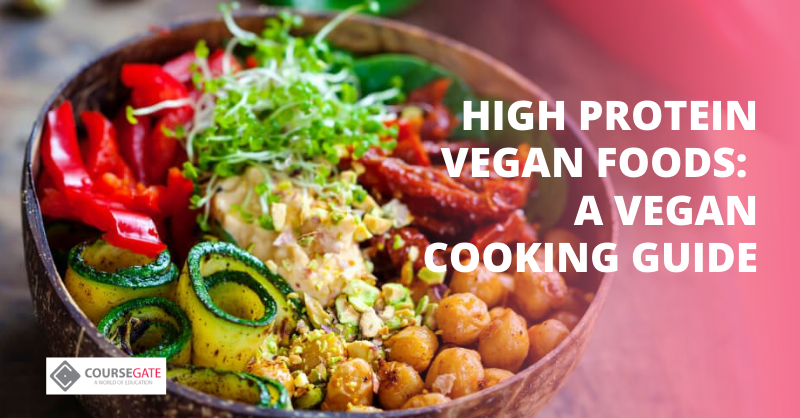
High protein vegan foods are often frowned upon. A common misconception about high protein vegan foods is that the diet is not going to be nutritious enough. That is absolutely wrong! You can make your diet all about greens and still get the maximum nutrient out of it. And all you need is a little knowledge of high protein vegan foods.
More and more people are making a change in their omnivorous lifestyle. Consequently, people are now more conscious about their meat intake. A vegan diet can provide you with just as much nutrition with a delicious plant-based food menu. The article will teach you all the basics of high protein vegan foods and share vegan recipes that are finger-licking good. So, hang tight!
Table of Contents
11 Best High Protein Vegan Foods
In veganism, you have to avoid all food that comes from animals. That includes cheese, egg, milk, etc. Thus, as a vegan, eating a varied diet containing different food is important. Some amino acids and vitamins may be missing from one source of plant-based food. So, you have to be careful and take the necessary vitamin supplements if you are an athlete.
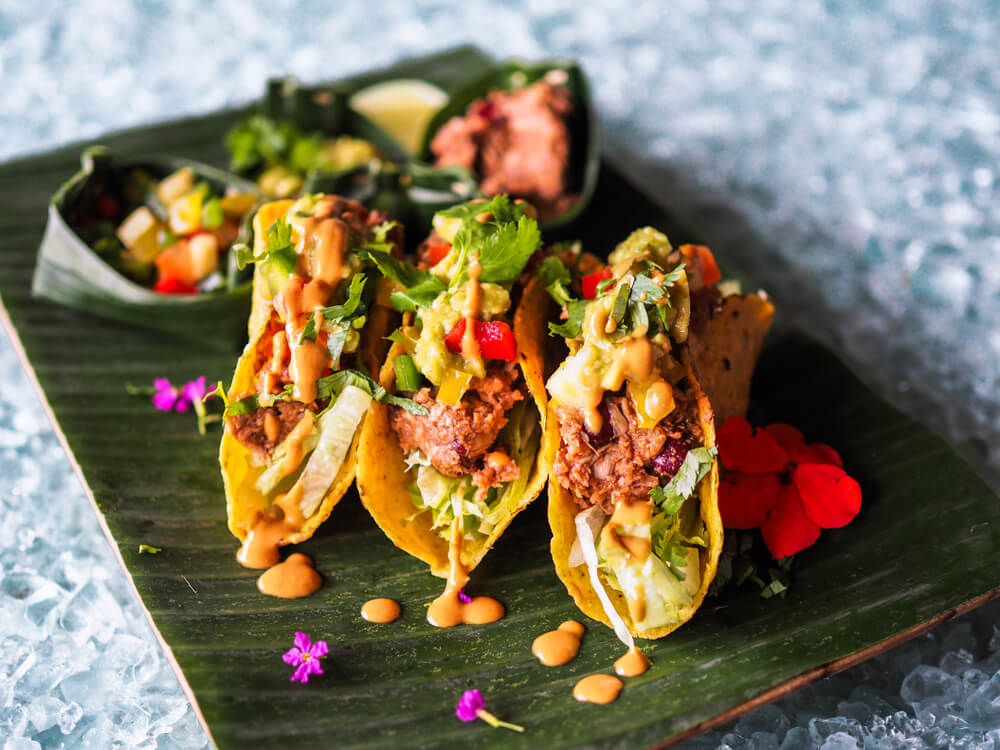
The following high protein vegan foods have rich nutritional content per serving. So, you can choose your pick from our list of 11 best high protein vegan foods.
- Seitan
- Lentils
- Chickpeas
- Nuts
- Oats or Oatmeal
- Soy
- Seeds
- Green Peas
- Spirulina
- Pumpkin, Quinoa, Flax, Sunflower Seeds
- Ezekiel Bread
1. Seitan
The main protein in Seitan is wheat, and it is one of the high protein vegan foods. Seitans are also very popular among vegetarians. However, people with celiac gluten intolerance or celiac disease should avoid it. Because seitan has high wheat content. Seitan can be cooked in soy sauce, which contains the amino acid lysine. Then it transforms into a full protein supply, with 21 g every 1/3 cup.

Consequently, it is a good source of selenium. And the food also has small amounts of iron, calcium, and phosphorus. Seitan is made out of gluten. Seitan is a fun food because after cooking it gives off the impression of cooked meat.
Moreover, it contains roughly 25 grams of protein per 3.5 ounces (100 grams). And it is also known as wheat meat or wheat gluten. This makes it the most protein-dense plant source on our list of high protein vegan foods.
2. Lentils
Lentils are rich in protein. Also, they are rich in other nutrients. Experts call it the nutritional powerhouse. Consequently, lentils are able to fight various diseases. You get 18 grams of protein per cooked cup of 240gm lentils.

Moreover, you can make a variety of dishes with lentils. They are good to eat with fresh salads or mixed up with soups. You can even dare to make the famous spicy dal if you are feeling up for a challenge. Moreover, lentils are rich in fibre. Approximately 500gm of cooked lentils is enough to satisfy your daily individual fibre intake.
Consequently, lentils contain a good amount of carbs that can be slowly digested. Furthermore, the fibre lentil provides help in promoting a healthy gut. This kind of fibre has been proven to feed the good bacteria in your colon. Moreover, regular intake of lentils helps reduce excess body weight. In some cases, lentils can reduce the risk of diabetes, heart disease, and cancer.
3. Chickpeas
Per cup, cooked chickpeas contain about 15 mg of protein. Chickpeas are thus one of the high protein vegan foods. You can eat it hot or cold. There are plenty of recipes you can find online for making delicious dishes with chickpeas. It makes chickpeas one of the most versatile plant proteins.
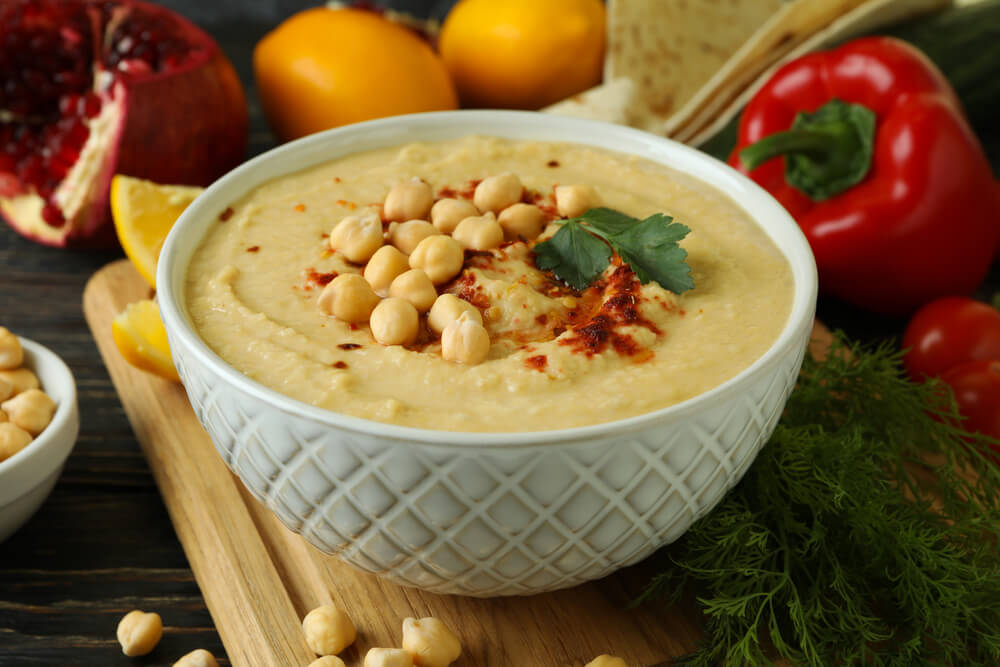
You can add chickpeas to your everyday stews or curries. Moreover, you can add a dash of paprika and salt and slow roast them in the oven. Another famous dish made from chickpeas is hummus. The dish originates from the Mediterranean and is made out of paste from chickpeas. Hummus is slowly making its way to the heart of every vegan. You can eat hummus as a spread for your bread or sandwich.
Moreover, chickpeas are brilliant sources of complex fibres, phosphorus, and potassium. Consequently, iron, folate, manganese, and some other beneficial plant compounds are present in chickpeas.
4. Nuts
Nuts are one of the most versatile high protein vegan foods you can include in your diet. You can choose your pick between peanuts, almonds, walnuts, pine nuts, and many others. Nuts are a great food to snack on if you ever feel like munching while watching movies. You can include nuts in your everyday meal. It maintains your energy throughout the day.

For every six almonds you eat, you get 3gm of protein nutrients. Moreover, almonds are a good source of vitamin E. Subsequently, vitamin E is essential for good care of your eyes, skin, and hair. In addition, nuts are great sources of fibre and healthy fats.
Cashews contain 12 percent of the recommended intake of vitamin K. And it also contains a substantial amount of magnesium. It is said to contain 20 percent of our recommended total intake of magnesium. Magnesium and vitamin K are two important nutrients for the better health of bones.
Peanuts can improve heart health and contain around 20.5 gm of protein in 1 and a half cup. Moreover, 3.6gm of protein is present in one tablespoon of peanut butter. That means your peanut butter sandwiches are fully packed with protein. Make sure the peanut butter jar you buy is free from added oil and sugar.
Also, nuts contain antioxidants, magnesium, and selenium among other beneficial plant compounds. Moreover, you can receive iron, calcium, and certain vitamin B complexes from nuts. In addition, always buy raw or unblanched nuts. Because blanching or roasting might damage the nutrient content of nuts.
Nuts are an amazing food you can add to your diet to get vitamins and minerals. Maximize your nutrient content by opting for unroasted and raw nuts.
5. Oats or Oatmeal
Oats are complex carbohydrates. Meaning it provides slow energy release. So an easy way to add plant protein to your diet and get all its deliciousness is to eat oats. Oats are a delicious source of protein.
Half a cup of dry oats can provide you with 4 grams of fibre and 6 grams of protein. Moreover, the portion also comes with a good amount of other minerals. It includes zinc, phosphorus, folate, and magnesium.
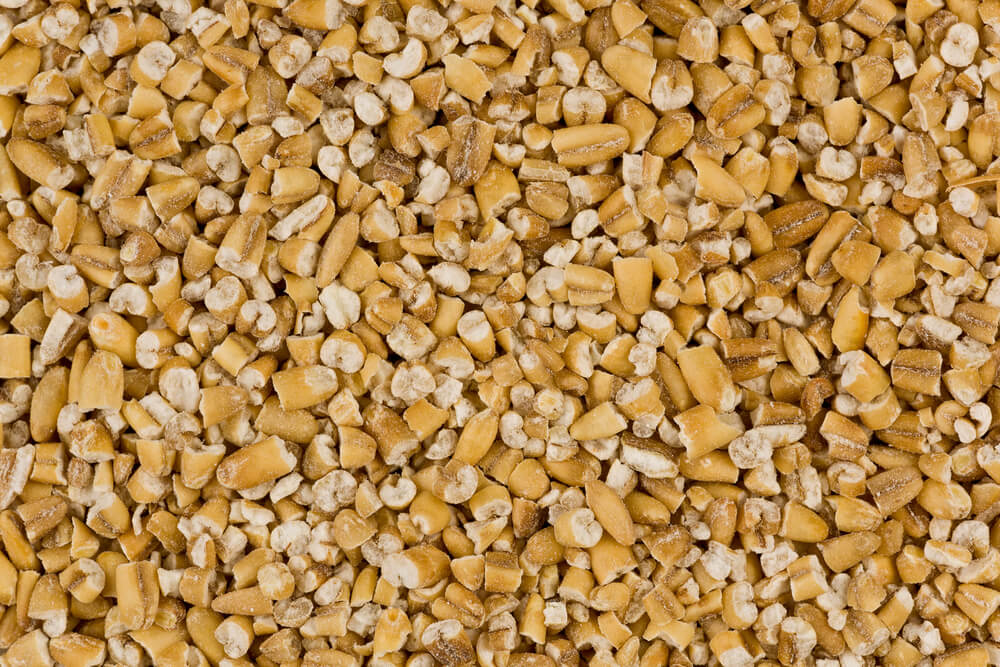
Oats are nutritious. And it is an easy way to include plant protein into a vegan diet. Other than oatmeal, you can make vegetable burgers with oats. You can also ground oats to get oatmeal flour.
Consequently, it is better to opt for steel-cut oats rather than the rolled ones. Because steel cut oats have a lower glycaemic index compared to rolled oats. Moreover, steel-cut oats are a solid source of protein. It keeps your blood sugar level in an optimal state. And you get fewer cravings after having porridge made with steel-cut oats.
Enrol in our vegan vegetarian cooking level 2 course and learn to prepare a variety of vegan dishes full of nutrition. As a vegan enthusiast who is just starting out, the course will give you a perfect opportunity. You can acquire the skills and cook like a professional. Moreover, you will learn in detail about the nutritional content of each ingredient. The course module also focuses on the professional plating of a dish.
6. Soy
Soy is one of the most diverse high protein vegan foods you can find out there. And the best part of soy is, it is widely available. Soy protein is a healthy plant-based diet. Tempeh, tofu, edamame are made out of soy. Moreover, soy milk is another popular source of soy protein on the market.
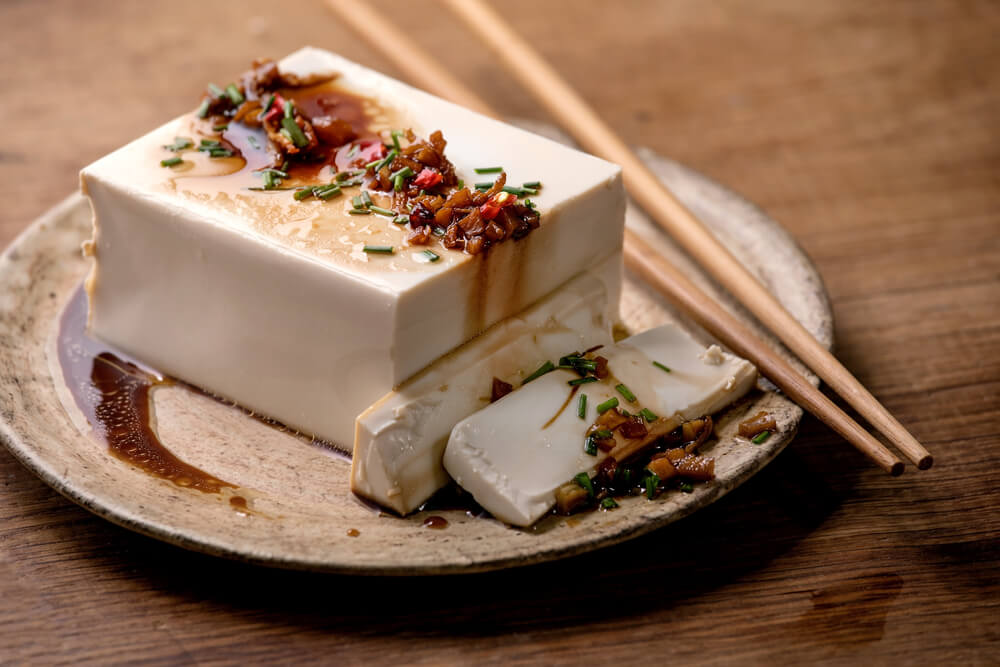
The content of protein in soy varies depending on how it is prepared. For instance, half a cup of firm tofu contains about 10gram of protein. In contrast, you can get 8.5 grams of protein from half a cup of edamame beans. And for tempeh, you will have 15 grams of protein from half a cup.
Soy milk is fortified with vitamins and minerals. And that makes soy milk a great alternative to cow milk. Soy milk is an excellent source of vitamin B12, calcium, and vitamin D. Moreover, 240 ml of soy milk contains about 7 grams of protein. You can consume soy milk as it is. You can even use it for cooking or baking recipes.
Also, soy milk is a great alternative for those who are lactose intolerant. Try to opt for unsweetened milk to reduce any excess level of sugar intake.
Tofu is popularly known as the plant substitute for meat. The best part about tofu is, it takes up the flavour of the dish you put it in. Tofu can be a meat substitute for your favourite sandwich. Consequently, some vegan restaurants use tofu as a meat substitute for Kung Pao chicken or sweet and sour chicken.
Consequently, soy products are a healthy substitute for dairy products. Moreover, soy products contain the same amount of calcium and iron as dairy products do.
7. Seeds
Seeds are yet another great source of high protein vegan foods. There are a variety of seeds you can get from plants. It includes chia seeds, hemp seeds, pumpkin seeds among others. And these are highly potent sources of protein and other nutrients. Moreover, seeds are rich in fibre and Omega- 3 fatty acids.

Include these low calories foods to pack a punch of protein into your diet. You can get 2 grams of protein per tablespoon of chia seeds. You can add chia seeds with your daily smoothie or have it with yoghurt. Another popular vegan recipe is to soak the chia seeds overnight and make some pudding.
Chia seeds are a great source of boron, niacin, vitamin B, vitamin D, and E. All these nutrients keep your body and skin healthy and younger-looking. Moreover, chia seeds contain 8.7 times more Omega 3 fatty acids than any salmon. Consequently, hemp seeds contain 50% more protein than chia and flax seeds. Per ounce of hemp seeds can give you 10 grams of digestible protein.
However, hemp seeds get bad reps sometimes as it comes from cannabis sativa plant. But, as a vegan, you cannot cross hemp seeds off the list of high protein vegan foods.
Research also found hemp seeds to have the optimal amount of Omega 3 and Omega 6 fatty acids required for human health. Further studies have found the fat present in hemp seeds can diminish symptoms of skin disease, menopause, and PMS. Sprinkle hemp seeds into your morning smoothie or morning muesli. You can also add hemp seeds protein bar to your diet.
8. Green peas
The little green peas are a great source of vitamin B complex, iron, zinc, magnesium, among others. Green peas are most often eaten as a side vegetable. In most cases, the benefits of green peas get neglected. Did you know that per cup serving of green peas provides you with 25% of your daily required fibre intake? And not just that, the green pea is a rich source of thiamin, folate and vitamin A, C, and K.
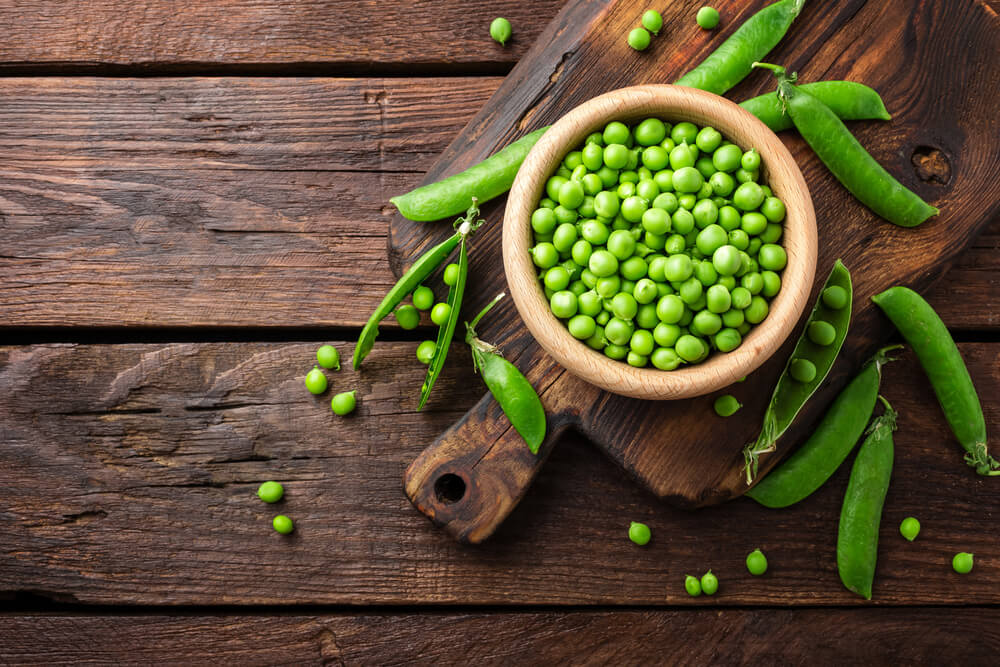
One cup serving of green peas contains 9 grams of protein. The amount of protein is more than what you find in a regular cup of milk. And that makes peas one of the high protein vegan foods you can eat daily. Green peas also contain phosphorus, manganese, and copper, among other minerals.
In addition, you can make a variety of dishes with green peas. It includes Thai inspired green pea soup, green pea’s guacamole, stuffed ravioli, etc. Add in green peas with your salad if you are in a hurry!
9. Spirulina
These blue algae are packed with protein, and experts call it a nutritional powerhouse. Sometimes, spirulina can be green in colour. 2 tablespoons of spirulina contains complete 8 grams of protein. Moreover, spirulina is able to fulfil 42% of your daily need for copper. Subsequently, spirulina contains 22% of your daily requirement of thiamin and iron.

Studies also found a decent amount of riboflavin, manganese, potassium in spirulina. Subsequently, a small number of fatty acids and other mineral nutrients are present in it. Moreover, a natural pigment called Phycocyanin is present in spirulina. The pigment has powerful anti-inflammatory and anti-oxidant properties. And traces of anti-cancer properties are also present.
You can buy spirulina online. It comes in the form of powder or supplements. You can add the powdered spirulina into your daily smoothies or fruit juice. Moreover, you can mix it up into your water and drink it plain and simple. To increase your daily intake of protein, sprinkle some spirulina onto your salads.
Spirulina is one of the nutritious, high-protein vegan foods known to reduce blood pressure. It improves your blood sugar and cholesterol level. Furthermore, consuming spirulina can help build a stronger immune system. So, make sure to include spirulina into your health-enhancing diet starting from today.
10. Pumpkin, Quinoa, Flax, Sunflower Seeds
Seeds are not just bird food anymore. Most seeds are packed with complete protein. Moreover, seeds are great for people who are allergic to nuts. Pumpkin seeds super conveniently provide you with satiating protein doses.
Pumpkin seeds pack about half of your total daily intake of magnesium. In addition, the seeds are rich in plant-based Omega 3s and immune-boosting Zinc. Pumpkin seeds also contain traces of tryptophan, which aids in taking a restful sleep.
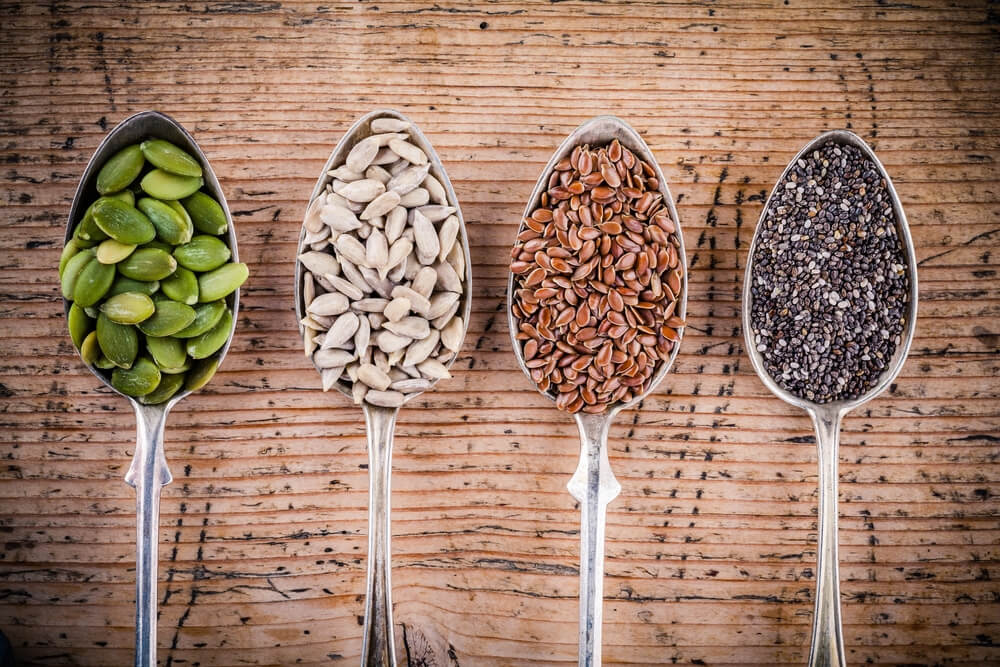
You can find mixed varieties of quinoa seeds in the market and online. Quinoa seeds can be red, white, and black in colour. Quinoa seeds are a complete protein food. That means you will find all the 22 amino acids present in quinoa seeds. In addition, Quinoa seeds are a great alternative to carbohydrates such as rice. 4 grams of protein is present in 100 grams of quinoa seeds.
Buckwheat seeds are one of the high protein vegan foods that are also rich in fibre nutrients. Also, buckwheat is gluten-free which makes it an excellent addition to your vegan diet. You can find grounded buckwheat seeds in flakes and flours.
Consequently, flax seeds are one of the oldest crops of civilization. Both the brown and golden variety of flax seeds are equally nutritious. In addition, flax seeds are a rich source of lignans. Lignan is popular for decreasing the risk of cancer.
11. Ezekiel Bread
Ezekiel bread is the safe haven for bread lovers. It is a more nutritious option for making sandwiches or eating toast. The dough of Ezekiel bread is made out of millet, barley, wheat, spelt, and lentils. All these ingredients make Ezekiel bread a great and nutritious alternative to regular bread.
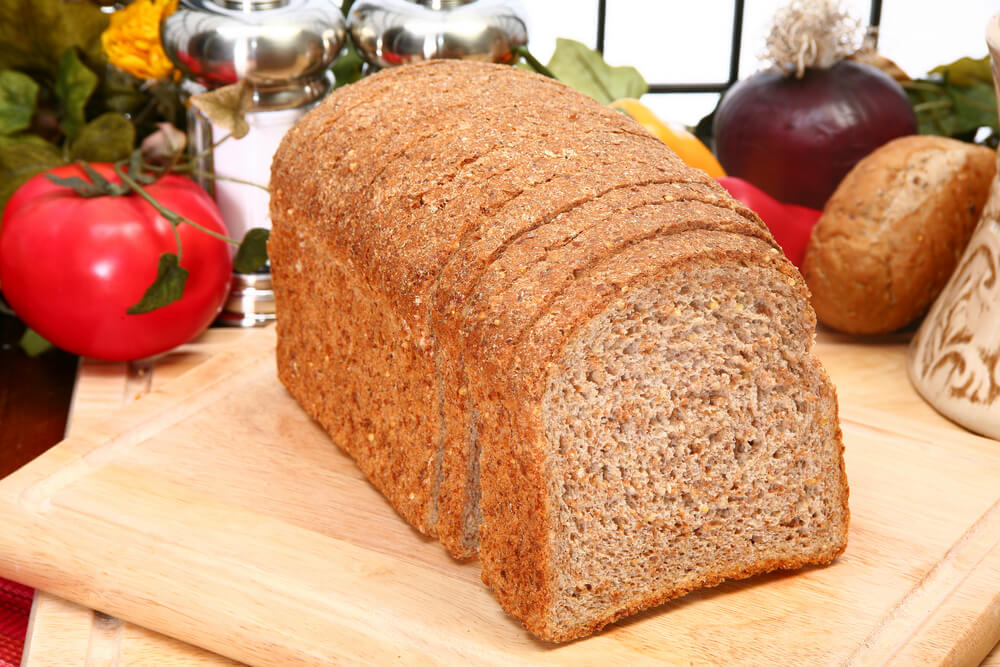
You can get 4 grams of protein per slice of Ezekiel bread. Moreover, you can pack a punch of protein and make it more nutritious by using peanut butter or almond butter as a spread. Furthermore, the pieces of bread are a great source of fibre, beta-carotene, vitamin C, and E.
Benefits of Eating High Protein Vegan Foods
A diet devoid of animal products necessitates preparation and investigation. It aids in meeting a person’s dietary requirements. This is a plus for vegans. Because it encourages individuals to consider their eating habits. You’re also aware of the nutritional value of the foods you consume.
As per the Academy of Nutrition and Dietetics, a vegetarian or vegan diet can reduce the risk of certain diseases. Certain types of heart disease and cancer are included. A vegan diet can also help you lose weight.
In a 2014 study, 1,475 people’s nutritional intakes were examined. According to the findings, vegans consumed less saturated fat than omnivorous people. In addition, the dietary cholesterol of vegans was under control.
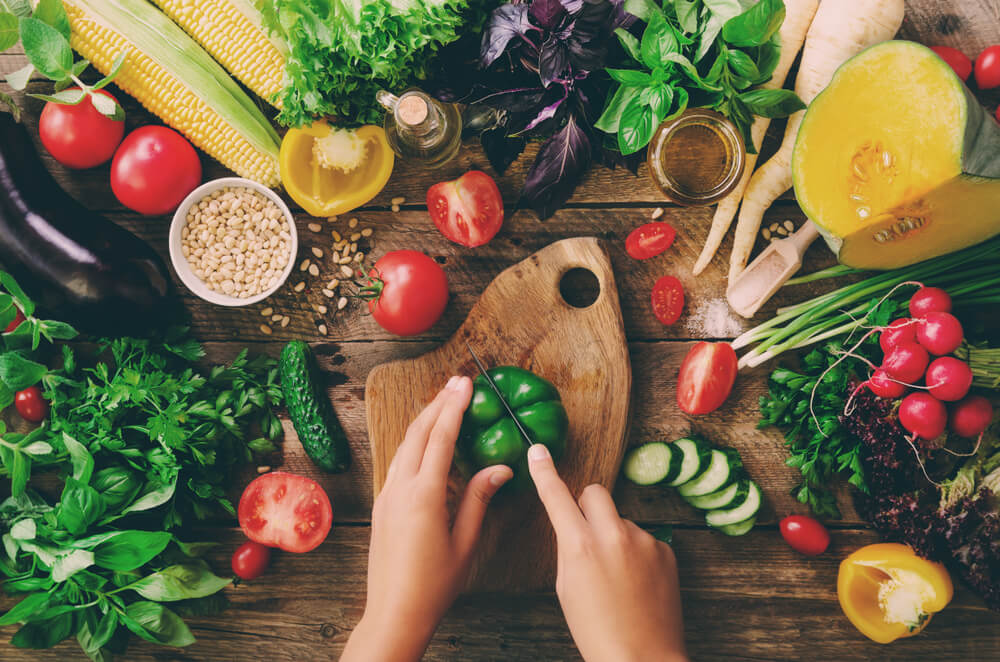
- Type 2 diabetes
- Hypertension
- Obesity
- Ischaemic heart disease
- Various cancers
Studies done over the years found that those who ate a diet rich in nutritious plant-based foods had a lesser risk of coronary heart disease. A vegan diet is typically low in calories. And that makes it easier for vegans to stay in shape. In addition, vegan diets may eliminate many unhealthy, high-sodium prepackaged items. It is because many processed goods are not vegan.
A vegan whole foods diet could considerably lower inflammation in adults with coronary artery disease, according to a 2017 study. This implies that eating a vegan diet can help your heart.
High Protein Vegan Foods: Protein Shake
Plant based protein supplements are widely available in the market. They may be complete or partial proteins, depending on the plants utilized to create the powders. If you work out particularly hard at the gym or as an athlete, then you might need more protein nutrients.
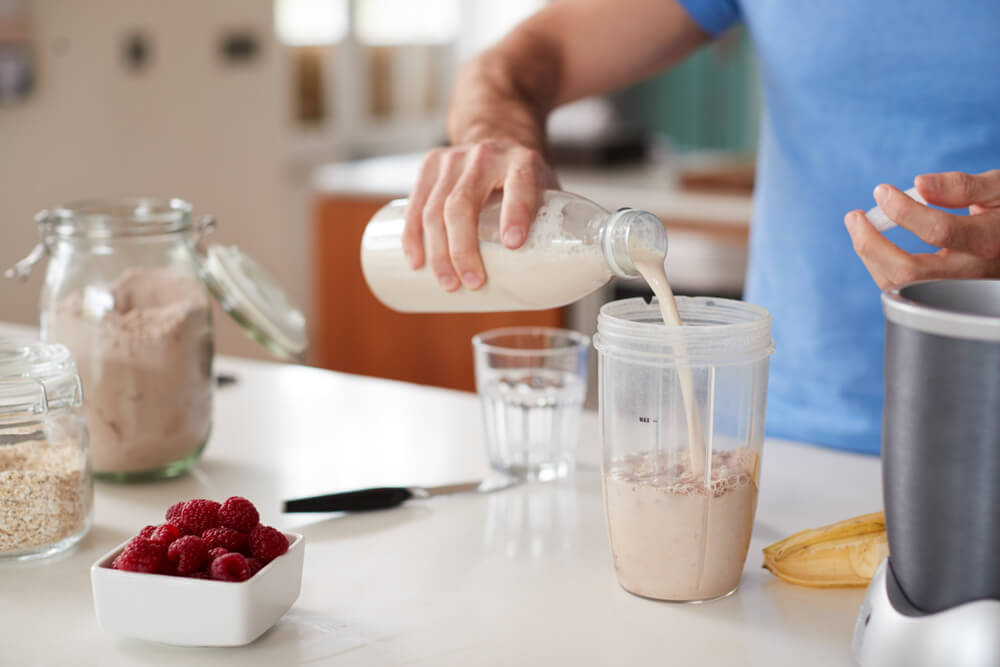
Otherwise, you will risk depleting your muscles of the building blocks they need to heal. There’s a lot of discussion about how much protein to eat on a daily basis. Thus, each individual needs to find out what their body needs.
Sometimes, you might feel like you need extra vegan protein in your diet. Then, a protein shake can always be added after your workout or after a meal! Vegan shakes are made up of protein powders made from soy, or hemp. Sometimes, you can find rice, and chickpeas as the main ingredients. Make sure to read the ingredient label carefully before purchase.
Summary
To go vegan, you need to have sufficient knowledge about high protein vegan foods. Going vegan requires some careful preparation. However, people who do not consume animal products can maintain a healthy diet. Vegan diets can help to maintain a healthy physique. In addition, it diminishes the risk of certain diseases.
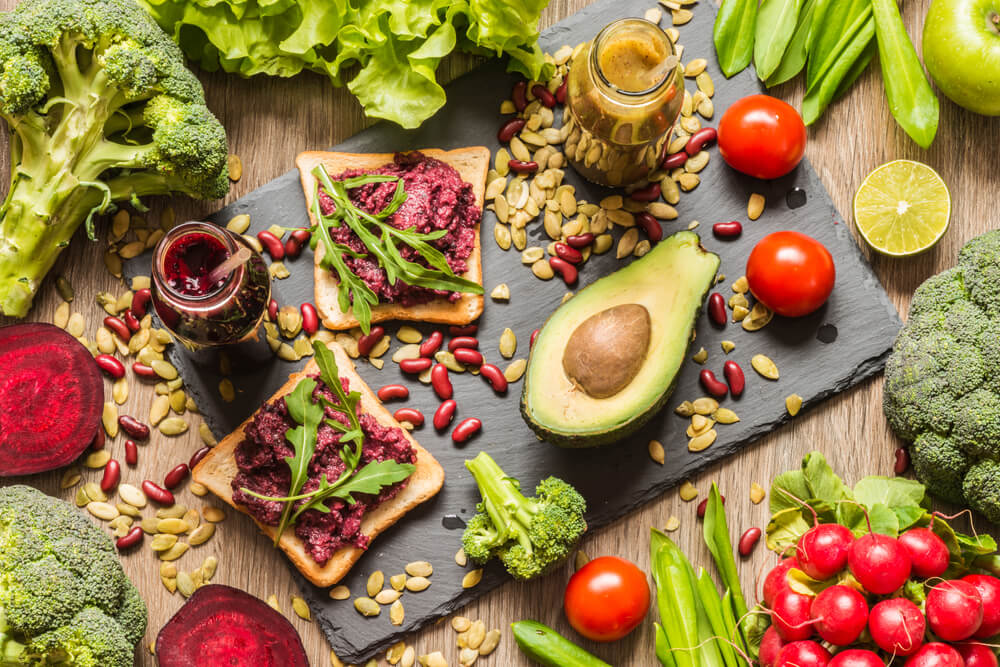
However, it is critical to consult a doctor or a nutritionist about nutritional quantities. Because vegan and vegetarian diets may be deficient in some nutrients. You may also need to take dietary supplements to meet your nutritional needs. As a result, it’s critical to learn how to incorporate high-nutrient foods into your diet.
- All Courses
- Accounting & Finance61
- Admin, Secretarial & PA45
- Audio Books (Audio Course)100
- Business Skills155
- Design76
- Digital Marketing48
- DIY (Do It Yourself)57
- Employability238
- Food Hygiene & Safety18
- Health & Fitness68
- Health & Safety108
- Health & Social Care183
- Human Resource49
- It & Software Skills115
- Language27
- LIFESTYLE85
- MAKEUP & BEAUTY49
- Management129
- Marketing60
- Massage & Physiotherapy17
- Microsoft Office64
- Nonprofit & Charity36
- On Demand Courses53
- Personal Development123
- Photography33
- Psychology & Counselling97
- SEN (Special Educational Needs)23
- Teaching and Education96











